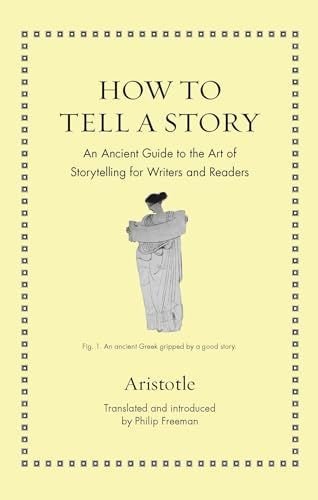
How to Tell a Story An Ancient Guide to the Art of Storytelling for Writers and Readers
"Aaron Sorkin, the Oscar-winning director and screenwriter of such hits as The Social Network and The West Wing, recently urged aspiring writers to become students and evangelists for Aristotle's Poetics. How is it that this small and rather obscure treatise by an ancient philosopher better known for metaphysics and ethics has become over the centuries the standard and best handbook for writing drama, novels, short stories, and now screenplays for film and television? How can a book that is admittedly difficult to read have become so influential among the small group of top professional writers? The short answer is that there is nothing better than Aristotle's Poetics for explaining the key points of successful storytelling. No one has examined and explained the keys to plot, character, audience perception, tragic pleasure, and dozens of other crucial points of writing like Aristotle. It is THE standard work from which we derive many of our terms and our understanding the way stories work. It is one of the most powerful and brilliant books ever written on the subject of how to tell a story, yet very few people have actually read it. Part of the reason for this is that Aristotle, even at his clearest, can be difficult to understand. The Poetics in particular can be confusing to read on one's own without a skilled teacher's guidance. Because of this, the Poetics remains the purview of only those who make the effort to work through its careful arguments and astounding insights. And yet. Philip Freeman, thus, aims to produce a faithful yet readable translation along with introduction and commentary of Aristotle's Poetics for a modern audience, especially for aspiring writers who want to follow Sorkin's advice and become immersed in this amazing work"--
Reviews
Jackson Weaver@jacksonweaver